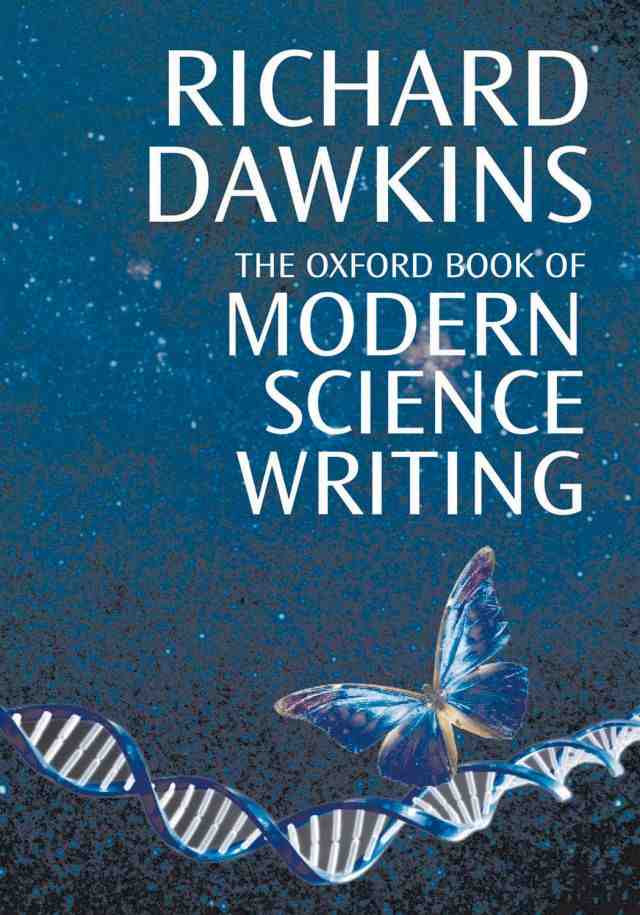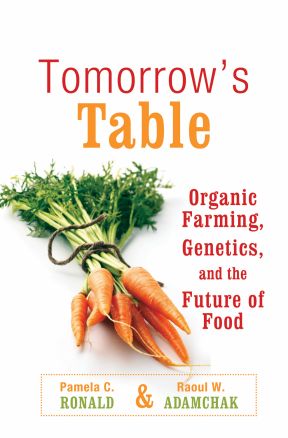By Cassie Ammerman- Publicity Assistant
Richard Dawkins is the bestselling author of The Selfish Gene and The God Delusion. He’s also a pre-eminent scientist, the first holder of the Charles Simonyi Chair of the Public Understanding of Science at Oxford, and is a fellow of New College, Oxford. Called “Darwin’s Rottweiler” by the media, he is one of the most famous advocates of Darwinian evolution. His most recent book is The Oxford Guide to Modern Science Writing, a collection of the best science writing in the last century.
pre-eminent scientist, the first holder of the Charles Simonyi Chair of the Public Understanding of Science at Oxford, and is a fellow of New College, Oxford. Called “Darwin’s Rottweiler” by the media, he is one of the most famous advocates of Darwinian evolution. His most recent book is The Oxford Guide to Modern Science Writing, a collection of the best science writing in the last century.
This is the first in a series of podcasts we’ll be running from an interview with Richard Dawkins. In it, Dawkins talks about the different scientists he chose to include in The Oxford Book of Modern Science Writing. In this selection, Dawkins talks with Dorian Devins about James Watson and Francis Crick, the two men famous for discovering the structure of DNA.
Transcript after the jump.
DORIAN DEVINS: Francis Crick is one of the people in here, and I know you…
RICHARD DAWKINS: Yes, I met him a couple of times. I know Jim Watson rather better. Francis Crick died a couple of years ago. He was of course the other half of Watson and Crick, and they were both indispensable. It’s a wonderful illustration of how two people coming together seem to make something that’s greater than the sum of their parts. Francis Crick has written a number of books. He’s always very thoughtful, very stimulating. It’s impossible for him to say anything that isn’t interesting, and he was one of the great, possibly the greatest, intellects of the molecular biology revolution, which started with Watson and Crick in 1953, when they were both young men. But Crick went on to in a way dominate the field. I mean, in the elucidation of the genetic code, the fact that it’s a triplet code, for example, he played a leading role in that. So he became a kind of elder statesman of molecular genetics, and then rather later in his life, he switched completely to a totally new field, which was the study of consciousness. And he was never really a proper neurobiologist, but he sort of somehow managed to well, use his eminence in the field to open doors to talk to neurobiologists. And once again, he was a very, very thoughtful, stimulating figure in that field, as well as his own field of molecular genetics.
DEVINS: Whereas I guess Watson, more or less, stuck to genetics, although he did…
DAWKINS: Yes he did stick with genetics, and Watson was pretty much involved in initiating the human genome project. He didn’t stay in the human genome project, but he was largely responsible for getting it started in the first place.
DEVINS: And their writing styles are so different. It’s interesting.
DAWKINS: Yes, well, that’s right. Watson’s writing style is amazingly readable, but very odd. I mean, it’s…any teacher of English would blue-pencil it straight away. He had a most weird tendency to stick strings of adjectives before a—not so much adjectives, more phrases that count as adjectives—so he’ll say, if he wants to say he walked by, well quite close to here is Keble College (which is the Victorian building designed by Butterfield), Watson will say “I walked by the Butterfield-designed Keble College.” Sticking an adjective, making a phrase into an adjective, and then sticking it before the noun. And it’s an odd way of writing, but for some reason, it’s very readable, and I find that his books are page turners in a way that any teacher of English would sort of veto.
DEVINS: It’s funny how the personalities come out in the writing sometimes.
DAWKINS: Yes, that’s true. I think it’s part of the personality, and I think it’s because Watson writes in such an irresponsible way. He doesn’t mind who he offends, and so you’re always kind of turning the page, waiting for the next bit of scandal really.
DEVINS: As he is in life.
DAWKINS: Yes.
ShareThis
Pamela C. Ronald is a Professor in the Department of Plant Pathology at the University of California, Davis and the co-author with her husband Raoul Adamchak of Tomorrow’s Table: Organic Farming, Genetics, and the Future of Food which argues that a judicious blend of two important strands of agriculture–genetic engineering and organic farming–is key to helping feed the world’s growing population in an ecologically balanced manner. In the post below Ronald responds to an editorial by Paul Krugman.
“Most Americans take food for granted”, reports the New York Times in an editorial last week. I would add that we also take abundant water, vast expanses of wilderness and clean air for granted. The price of oil, global warming and skyrocketing food prices are changing the way we think about land. It is about time. Have we forgotten that land and its resources are precious? Have we forgotten how to be good stewards?
I n an editorial this week in the NYT, Paul Krugman places part of the blame on biofuels: “We need to push back against biofuels that turns out to have been a terrible mistake.” But this conclusion is premature and overly simplistic.
n an editorial this week in the NYT, Paul Krugman places part of the blame on biofuels: “We need to push back against biofuels that turns out to have been a terrible mistake.” But this conclusion is premature and overly simplistic.
Whether biofuels offer carbon savings depends on how they are produced. If we destroy rainforests and grasslands to plant food crop–based biofuels, then Kurgman is right. This is a bad idea. Such an approach would release 17 to 420 times more CO2 than the annual greenhouse gas (GHG) reductions that these biofuels would provide by displacing fossil fuels. (Fargione et al, science 2008).
In contrast, biofuels made from waste biomass or from biomass grown on degraded and abandoned agricultural lands planted with perennials (so called cellulosic biomass) incurs little or no carbon debt and can offer immediate and sustained GHG advantages. Research on cellulosic biofuels have only just begun and there are tremendous opportunities. For example, plant biologists are working towards developing new and more productive non-food crops that can be grown on marginal lands. If we triple the yield of biomass we can use 1/3 less land. If we use the most ecologically responsible farming practices available (e.g. organic farming) to produce this new crop biomass, we can reduce the environmental impacts.
Nathanael Greene in an interview with Ira Flatow on Science Friday today said we need new innovations and we need to use them smartly. That is what should be done.
ShareThis

Earlier today we posted an excerpt from When A Gene Makes You Smell Like a Fish…and Other Tales about the Genes in Your Body, by Lisa Seachrist Chiu. Now we are going to delve deeper into the book with an excerpt that looks at a specific genetic disease, Marfan syndrome.
On January 24,1986, U.S. Olympic volleyball player Flo Hyman took a well-earned breather during a game her team was playing in Matsue, Japan. It was the third game of the evening, and Hyman rotated out on a routine substitution. She sat on the bench and within seconds slid to the floor. Just two years after her team made history winning a silver medal in Los Angeles, the woman touted as the best female volleyball player ever was dead. (more…)
Share This

I’m going to be honest. I have been waiting for When A Gene Makes You Smell Like a Fish…and Other Tales about the Genes in Your Body to come out in paperback. It is one of those book where you are so immersed in the stories you only realize later, after you put it down, how much you have learned. Author Lisa Seachrist Chiu tells stories about rare and not so rare genetic quirks while explaining modern genetics. Below we have excerpted the beginning of chapter two, Just One Bad Apple, this afternoon we will look at the Long Stretch Gene.
Your third-grade teacher was right. Sometimes it takes only one bad apple to spoil the barrel. (more…)
Share This
An odd moment of things that bounce off each other: This morning I read this New York Times article on the genetic make-up of the UK and Ireland, and thought, Sure, but I know that already... why do I know that? and then smiled, as I realised I was remembering a Kipling poem that said much the same thing to me as the article did, only it said it as poetry and as story.
The Kipling poem, The Land, is at http://whitewolf.newcastle.edu.au/words/authors/K/KiplingRudyard/verse/p3/land.html.
pre-eminent scientist, the first holder of the Charles Simonyi Chair of the Public Understanding of Science at Oxford, and is a fellow of New College, Oxford. Called “Darwin’s Rottweiler” by the media, he is one of the most famous advocates of Darwinian evolution. His most recent book is The Oxford Guide to Modern Science Writing, a collection of the best science writing in the last century.




